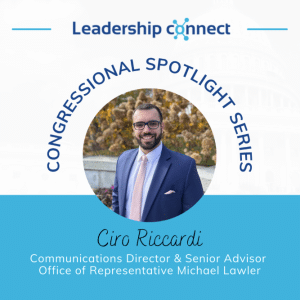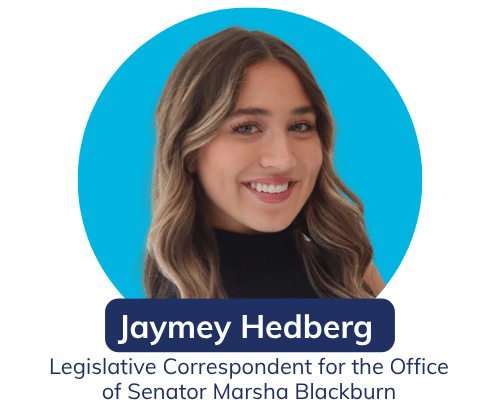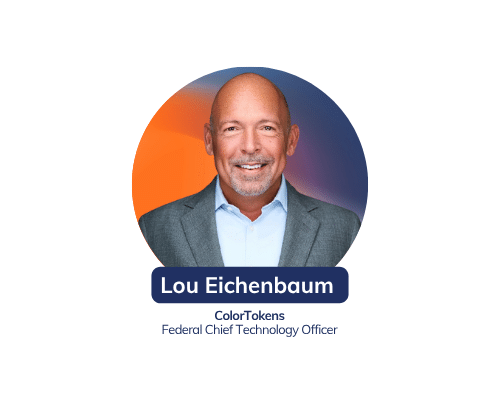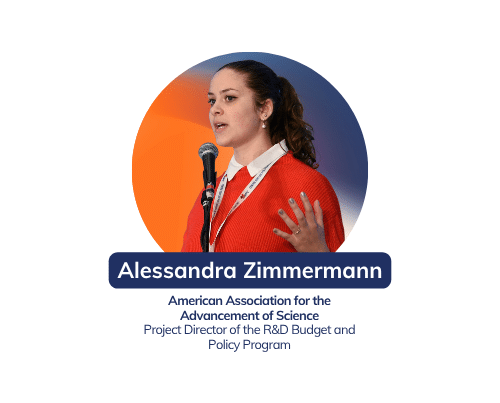Inside the Hustle: How Campaign Roots Fuel Hill Resilience

This week, we spoke to Ciro Riccardi, Communications Director and Senior Advisor for the Office of Representative Michael Lawler.
Can you outline your career journey and the key steps that led you to your current role as a Director of Communications and Senior Advisor?
I started my career journey in college, becoming involved with conservative groups on campus and working my way into leadership roles. From there, I connected with the Colorado GOP and served as a Regional Field Director in the 2020 cycle. A key aspect that has shaped my success today is my openness to traveling and exploring new experiences. After launching my career in Colorado, I had the opportunity to work on or run campaigns in Georgia, Virginia, New Jersey, and New York. Having a diverse background in politics across multiple states is irreplaceable, and I strongly encourage any junior staffer to pursue such opportunities while they can.
Which policy areas or legislative issues are you most passionate about, and how do you stay informed and engaged in those topics?
As Communications Director, a large portion of my responsibilities is to stay informed on national news, local news, and specific priority areas for my member. I frequently check a wide variety of traditional media sources and monitor social media trends and rely on media monitoring services like Critical Mention to track mentions.
I am passionate about financial news, where staying ahead of the curve is critical since updates can shift sentiment rapidly throughout the day. For that, X is one of my go-to sources for breaking updates, offering real-time updates that are essential in a field where something posted in the morning might be outdated by market open.
Can you share a challenging or rewarding project that played a significant role in your professional development? How did you overcome the challenge, and what key lessons did you take away from the experience?
One of the most challenging experiences in my career was serving as the political director for Assemblyman Mike Lawler’s campaign for Congress. The state’s highest court rejected New York’s congressional maps, labeling them an “extreme partisan gerrymander,” and redrew them into some of the fairest and most contiguous maps the state has seen in decades. As a result, my hometown district, represented by Democrats almost uninterrupted for over 40 years, suddenly became one of the most competitive in the country. Our opponent was Sean Patrick Maloney, Chair of the DCCC. Campaigns in battleground districts like this typically take 18 to 24 months, but we had just 5 months and were outraised 5-to-1 by our opponent. Despite these challenges, we pressed on and ultimately secured a narrow victory.
I learned from this experience that no matter the odds or prevailing sentiment, you should never ease up or coast through. While you often learn more from losses than wins, I learned that hard work and long hours can truly pay off.
In your role as Communications Director, effective leadership is essential for keeping the team aligned with messaging and communication goals. What strategies or techniques do you use to inspire and motivate your team, ensuring they remain focused on delivering the office’s objectives despite any obstacles?
In my role as Communications Director and in previous management roles, effective leadership is the cornerstone of keeping the team aligned with our goals. A good leader must work closely with their team and remain open to their ideas and suggestions. While I may have a firm grasp of the overarching plan and vision, each team member brings unique insights shaped by their diverse life experiences and backgrounds. These perspectives enrich our approach and strengthen our outcomes. Although not every suggestion can be implemented, I prioritize creating an environment where everyone feels comfortable voicing their thoughts and confident that their input is genuinely considered. By feeling invested in the process and valued for their roles, the team remains committed to achieving our goals, no matter the circumstances.
Mentorship is a key aspect of leadership. Could you provide an example of how you’ve supported the growth and development of your team members, helping them enhance their communication skills and advance their skill sets?
I’ve always made it clear to everyone who has ever worked for me that they can seek advice or guidance anytime. With my experience as a political operative, I’ve helped former staff develop skills that are key to these roles, like strategy, management, and handling complex challenges. I’ve had former staff reach out years later, asking questions or looking for a recommendation between offers they may have, and I’m always happy to take those calls and give advice from my perspective to guide them toward their career goals. Working within my current team, I try to limit silos as much as I can and keep staff in the loop, fostering a collaborative environment where everyone stays aligned and informed.
Word association, what is the first word that comes to mind for each of these?
Policy – Strategy
Networking – Connections
Writing Skills – Articulation
Working on the Hill – History
Leadership Connect – Mentorship






